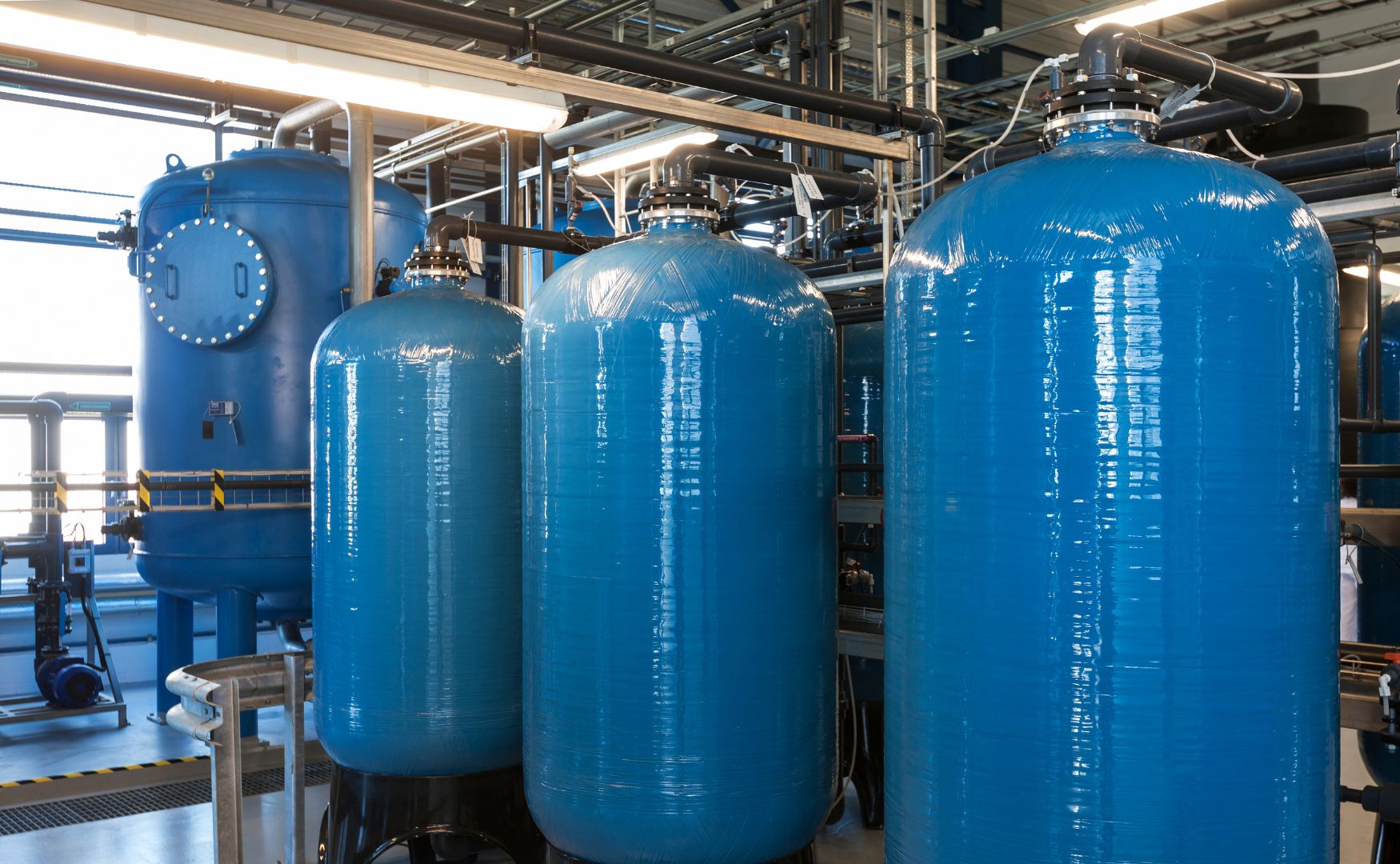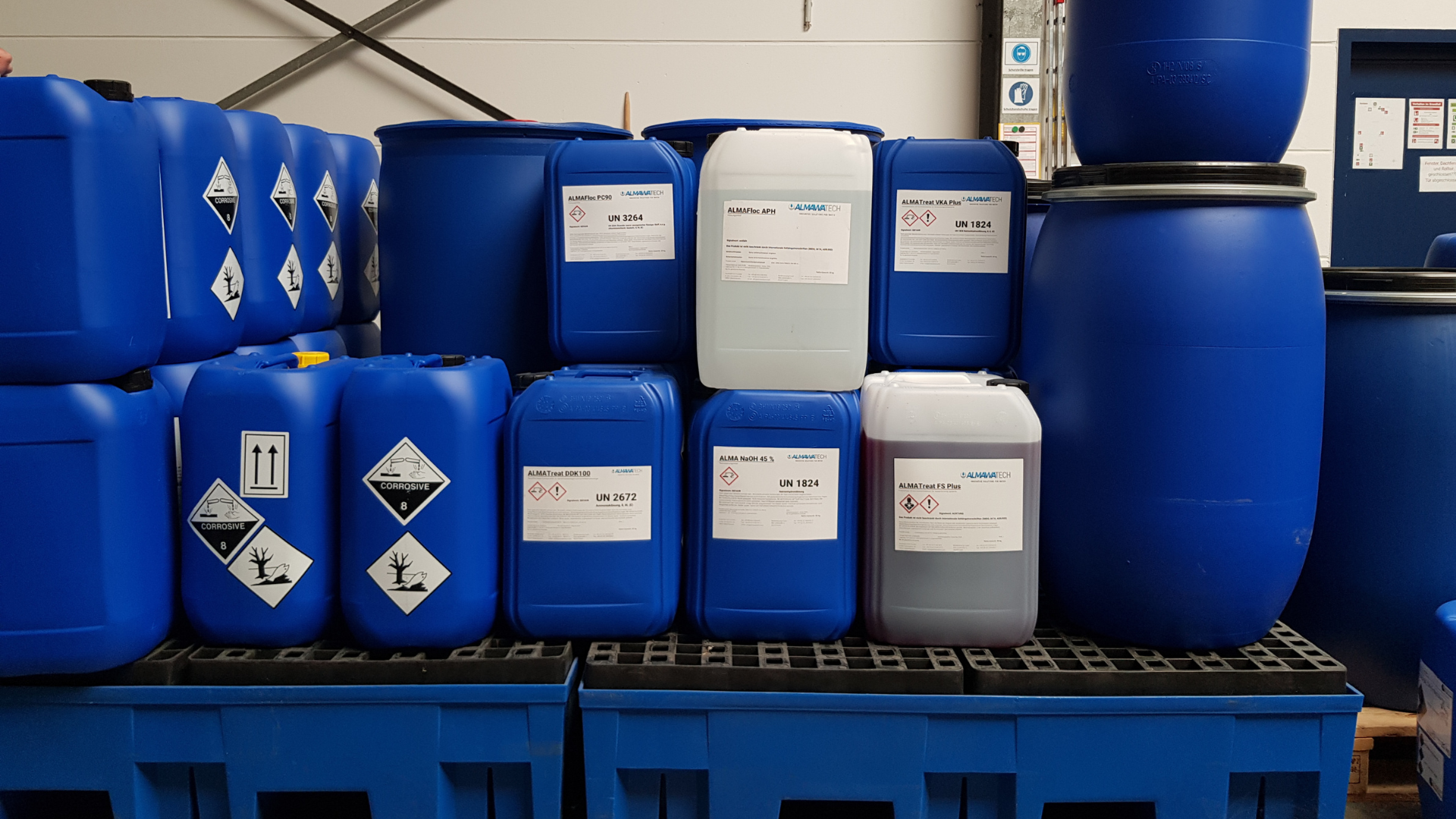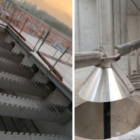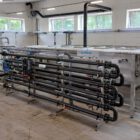Water softening refers to the process of removing calcium(Ca²⁺) and magnesium (Mg²⁺) ions, which are responsible for water hardness. Hard water causes problems in many industrial processes, as the dissolved hardness constituents can lead to deposits (scaling), reduce system performance and increase energy consumption. Particularly in industrial circulation systems, such as steam boiler systems, cooling circuits and membrane systemscontrolling water hardness is crucial to maximize efficiency and reduce operating costs.
Table of contents
Technical background
Hard water contains high concentrations of dissolved calcium and magnesium salts, especially in the form of carbonates and sulphates. These ions tend to settle as solid deposits on heat exchangers, pipes and membranes when heated or when the solubility conditions change. This process is known as scaling. Such deposits lead to a reduction in the heat transfer rate, rising energy costs and increased maintenance frequency.
Die Wasserhärte wird oft in Grad deutscher Härte (°dH) oder in Millimol pro Liter (mmol/l) angegeben. Typische Bereiche der Wasserhärte reichen von weichem Wasser (< 8,4 °dH) bis zu sehr hartem Wasser (> 21,3 °dH).
Water softening process
The most widely used method of water softening is ion exchange, in which calcium and magnesium ions are exchanged for sodium ions (Na⁺). This process takes place in special ion exchange resins, which are used in water softening systems are used in water softeners.

Photo: ALMA ION water softener for industrial applications
How the ion exchange works:
- Loading the resin: The water flows through a resin tank filled with cation exchange resins. The resins contain sodium ions (Na⁺) on their surfaces, which are exchanged on contact with the calcium and magnesium ions.
- Softened water: The calcium and magnesium ions remain in the resin and the water that leaves the system contains sodium ions instead of the hardness formers. As sodium does not form solid deposits, the water is now considered softened.
- Regeneration: When the resin is saturated, it is regenerated with a concentrated saline solution (NaCl). The sodium ions displace the accumulated calcium and magnesium ions, which are then removed with the rinsing water.
Advantages of water softening
- Prevention of scale: In steam boiler systems in particular, softening the feed water is crucial to prevent calcium and magnesium salts from depositing on the boiler heating surfaces. Untreated hard water can lead to the formation of thick layers of limescale, which hinder heat transfer and increase energy consumption.
- Increased service life of the systems: In cooling circuits and membrane systems softening prevents scaling and extends the service life of heat exchangers and membranes.
- Reduced chemical consumption: Softened water reduces the need for antiscalants and other chemicals to prevent deposits.
- Optimized processes: Soft water ensures smooth and energy-efficient operation of systems, resulting in cost savings and a reduction in production downtime.
Our solutions: ALMA ION softening systems and ALMA AQUA chemicals
The ALMA ION softening systems from ALMAWATECH offer a reliable and customizable solution for industrial water softening. Our systems are designed for different flow rates and applications and offer efficient reduction of water hardness. With the ALMA ION-systems, we ensure that your water is softened to the required hardness levels to prevent scaling in boilers, cooling systems and membrane systems avoid scaling in boilers, cooling systems and membrane systems.
We also offer a comprehensive range of ALMA AQUA-chemicals, including antiscalantswhich have been specially developed for membrane systems. These products prevent hardness formers from depositing on the membranes and impairing the performance of the systems.

Areas of application
Softening plays a central role in numerous branches of industry:
- Food and beverage industry: Prevention of deposits in heat exchangers and boilers.
- Pharmaceutical industry: Required for the production of process water with defined purity requirements.
- Chemical industry: Protection of cooling and hot water circuits against scaling.
- Metal processing: Softened water is required for surface treatment and electroplating processes to prevent the formation of deposits.
Conclusion
Water softening is an indispensable process in industrial water treatment that helps to reduce operating costs, increase the efficiency of systems and extend their service life. The softening systems in the ALMA ION series and our ALMA AQUA-products offer customized solutions for different applications and ensure the sustainable and reliable softening of water used in industrial processes.








